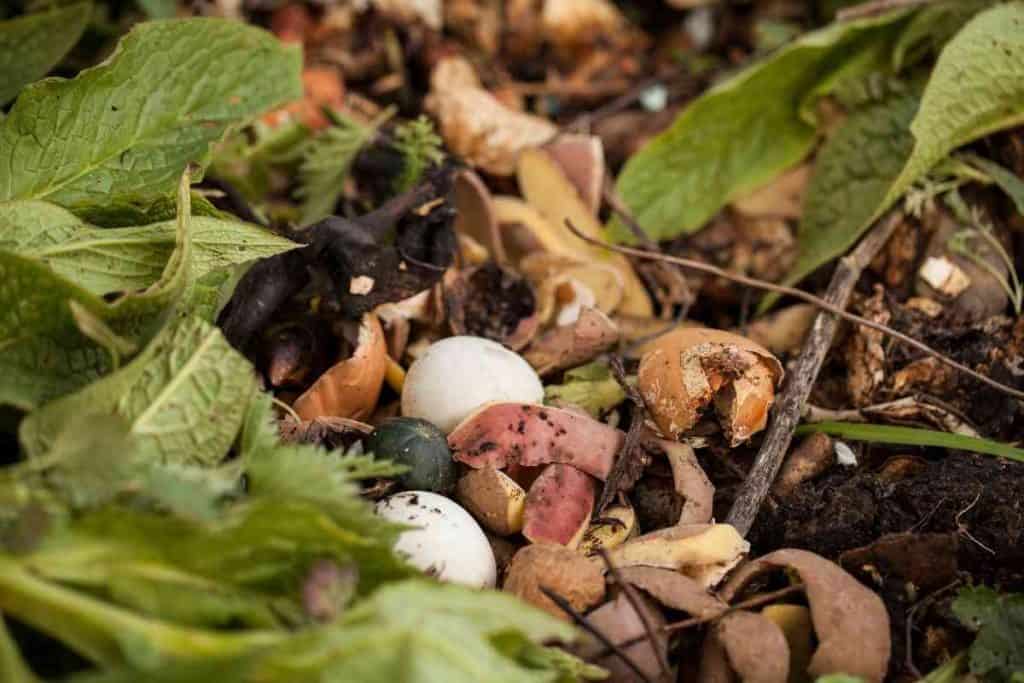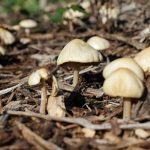As a gardener, your goal is to make a bountiful harvest from your crops, including tomatoes. And I believe you will go any length into searching for the best methods to help you in this bid, and notable among them is obtaining a good soil mix.
Generally, compost improves plant growth, giving you that bountiful harvest you seek, but is it suitable for every plant? Is mushroom compost good for tomatoes?
Yes, mushroom compost is good for tomatoes because it provides them with enough calcium that helps reduce the risks of root rot, thereby increasing your tomato plant’s yield.
However, if you want it to work well for your tomatoes, you’ll need to apply the correct quantity using the recommended methods.
Table of Contents
What Exactly Is Mushroom Compost?
A lot of people do not know what mushroom compost is, which is why they are cut in-between the web as to whether it is suitable for tomatoes or not.
Mushroom compost is quite simply a kind of slow-release, plant-based fertilizer.
The compost refers to the leftover of the mushroom cultivator using organic substances like hay, corn cobs, etc.
It is called mushroom compost because it is made out of mushrooms; it doesn’t have any mushroom content but rather is produced significantly for mushroom cultivation.
However, compost is not only good for mushrooms but also several other plants and vegetables.
Additionally, if the compost fails to commercially meet up to the mass scale production of mushrooms, the spent mushroom compost is then utilized for the cultivation of mushrooms or several gardening plants and vegetables or used as general compost for gardening.
Significantly, mushroom compost is a substrate with a high concentration of humus and other essential nutrients because of its high nutrient content.
Since mushrooms are saprophytes, they thrive in dark, humid environs where they can get dead compost. The mushroom compost ranges from 60-70% straw, 28-34% poultry litter, and 2-4.5% gypsum.
What Is Mushroom Compost Made From?
Mushroom compost is produced from straw, corn cobs, horse and poultry manure, peat moss, gypsum, and lime compounds.
It creates a mixture that has a very high concentration of organic matter that is best for mushroom gardening. Mushroom spores are injected into the compost and allowed for at least 3 weeks before being harvested.
Is Mushroom Compost Good For Tomatoes?

Going by all the highlights and explanations, it is easy to see why mushroom compost works well for tomatoes.
It can be explained further by the fact that most of the problems that are associated with tomatoes can b,e reduced at least to a larger extent with the use of mushroom compost.
In other words, if you want your tomatoes to encounter less or none of their problems, the mushroom compost can help you with that.
Therefore, your tomato plants are better off with mushroom compost. However, you must ensure you use the right proportion and follow the correct procedures to avoid even worse damages to your tomatoes.
The mushroom compost contains a high amount of calcium that will reduce the risk of root rot, which hampers your dreams of reaping bountifully from your tomatoes.
Again, it helps to retain soil moisture, which is an advantage given that tomatoes thrive under the soil with rich moisture. Applying mushroom compost tea into your tomatoes helps to keep them safe from diseases such as leaf mold and several other pathogens.
What Are the Benefits of Using Mushroom Compost?
Having gone through the common problems associated with tomatoes, it is essential to highlight the several benefits that come with using mushroom compost.
This will help you to further understand if mushroom compost is suitable for your tomatoes.
- It boosts plant growth: This is made possible by the fact that it is filled with essential nutrients and vitamins.
- It helps in controlling the excess weed: Mushroom compost is a good weed control mechanism, given that you can use its thick layer as mulch. In other words, it is too thick or dense for weeds to penetrate and, at the same time, offers lots of nutrients to your plants when required. It also helps to retain moisture.
- It doesn’t ooze excessive smell: This is explained because when you mix it in the top layer of the soil surface, you can only perceive a musty smell that would waste less time to disappear.
- It neutralizes the soil: Applying mushroom compost in your tomato plant helps to neutralize acidic soil, made possible by the fact that it contains alkaline (lime).
- It improves irrigation: Just as the mushroom compost is a good compost for moisture retention, if you mix it in your garden soil, it will promote its irrigation activities and prevent root rot. It even works better if your garden soil is more clay.
Tomatoes and Common Problems Associated with Them
Growing tomatoes can be very problematic and complicated, which is why gardeners seek the ideal fertilizers or soil to grow them.
We feel that highlighting these problems will help you to know if the same can be said of it when you use mushroom compost.
- Root Rot: This is one of the most common problems associated with tomatoes, which is why it needs the right soil. Tomatoes incur root rot when they lack water and calcium, as they are quick growers. Therefore, it requires soil with water retention abilities and high calcium amounts.
- Mold: With leaf mold comes yellow spots on leaves, which results in less harvest of tomatoes. Therefore, mold-resistant soil is ideal. Additionally, you can ventilate your growing area to prevent mold. Mushroom compost can also be applied as mulch to destroy the pathogens in the soil and keep the plant out of the reach of mold.
- Tomato Blight: It is one of the most disastrous tomato diseases. Blight causes premature rot in fruits and leaves of tomatoes. Therefore, the right soil is needed to repel it. This disease is most common in wet climate regions, and to fight it, you must create a compost tea and spray it on your crops.
- Compost Tea: Tomato gardeners sometimes use liquid compost called fungal-compost tea to spray their plants, thereby preventing them from contracting diseases and bacteria. The compost is one of the most recommended and effective natural anti-fungal materials that can fight off fungi.
However, be cautious of it around your seedlings or salt-sensitive plants. Also, mix it properly with your garden soil before cultivating any crop, or be patient with it through the winter, when you can use it for complete growth during spring.
Related Posts:
- Top 15 Plants That Don’t Like Mushroom Compost
- Will Mushroom Compost Burn Plants? (Well Explained)
- Is Mushroom Compost Good for Strawberries?
- Do Cucumbers Like Mushroom Compost?
- Why Do My Tomato Plants Not Produce Fruit?




